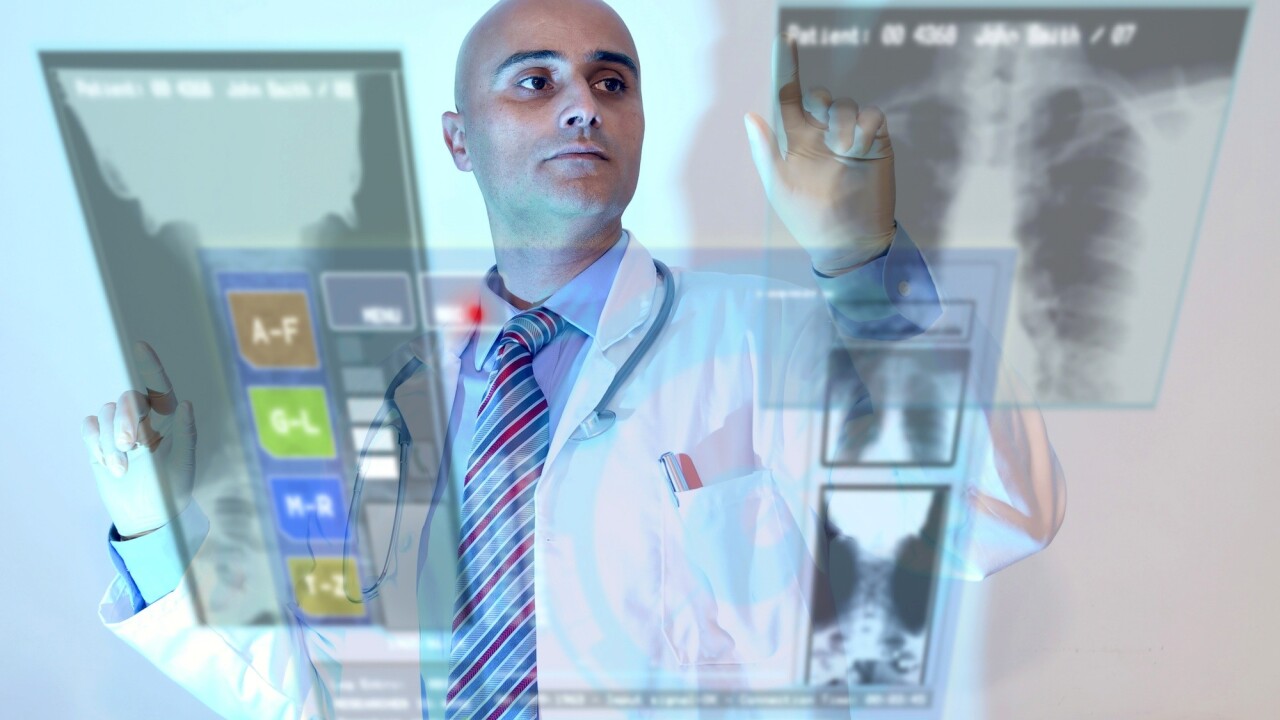
The problem with healthcare is simple: there’s not enough of it. In a perfect world we’d all have our own personal physicians like the Queen. But in reality, the average doctor sees thousands of patients a year. Solving this problem could take decades. Unless, of course, someone were to “hack” the system itself using artificial intelligence.
There’s no immediate answer to the global shortage of doctors. Lowering the bar of entry won’t work, and there’s not much hope humans will suddenly take better care of themselves.
Fixing the problem, in the short-term, involves empowering the doctors we have today with better ways to treat the patients they have right now. AI can do that.
Tashfeen Suleman knows this because his company, CloudMedX, is hard at work developing AI-powered healthcare solutions that are already having a positive affect on patient outcomes.
The idea at CloudMedX is to augment doctors with a system that keeps all of the pertinent information on a patient at the ready. Furthermore, the company’s developing an app that patients can use to access their records and relevant information.
The patient app is an interesting idea. It’s designed with a feature that’s supposed to work like a Google voice search or WebMD search for your symptoms. But instead of giving generic results, it uses a comprehensive knowledge of medical information, your personal medical history, and deep learning to give you insights comparable to those of a human physician.
But the more exciting integration for this machine learning construct is in how physicians will use it. CloudMedX recently conducted an experiment where they pitted their system against doctors to see which performed better on a modified medical exam.
The winner was actually both. While the machine outperformed humans, the highest test results were achieved by doctors working in tandem with the AI. The humans alone had a high score of 81 and the machine achieved an 85. But together they achieved a 91.
One of the doctors involved in the experiment, Dr Alan Pitt, Professor and Attending Physician, Barrow Neurological Institute, said:
Moving forward providers will have a new tool to bring information to the bedside, I have hope AI will free providers to spend more times with patients by freeing them from their current role as scribes for the EMR.
The effect the AI has goes far beyond simply making paperwork easier though. Suleman told TNW that CloudMedX’s software and AI can help ensure doctors don’t become complacent. “If a physician doesn’t put something in the EMR the next physician may never know about it, even if it was in a patient’s history before,” he says.
The way it works now is that physicians rely on their memories from school, training, and the thousands of patients they’ve seen over their careers to make decisions, often within minutes of seeing a patient for the first time. Doctors can augment their own analysis with information from databases and books – meaning they can research stuff they don’t immediately recall — but with only so much time between patients there’s precious little time for in-depth analysis.
No human can memorize the contents of every medical text book and recall even the most tiny detail at a moment’s notice. AI can, though. It can also cross-reference every single detail with every other detail and find patterns that an average human would be incapable of. In fact, CloudMedX’s AI was trained on tens of millions of cases.
In short, Suleman and his team at CloudMedX are trying to give overworked doctors an extra brain that never forgets anything, and continuously learns so that physicians can cope with the ridiculous patient loads they have today.
CloudMedX’s technology is in trials in numerous clinics and hospitals in the US, the company plans to announce more partnerships in the future. The patient app will launch in beta “soon,” you can visit the company’s website to request access.
Get the TNW newsletter
Get the most important tech news in your inbox each week.




